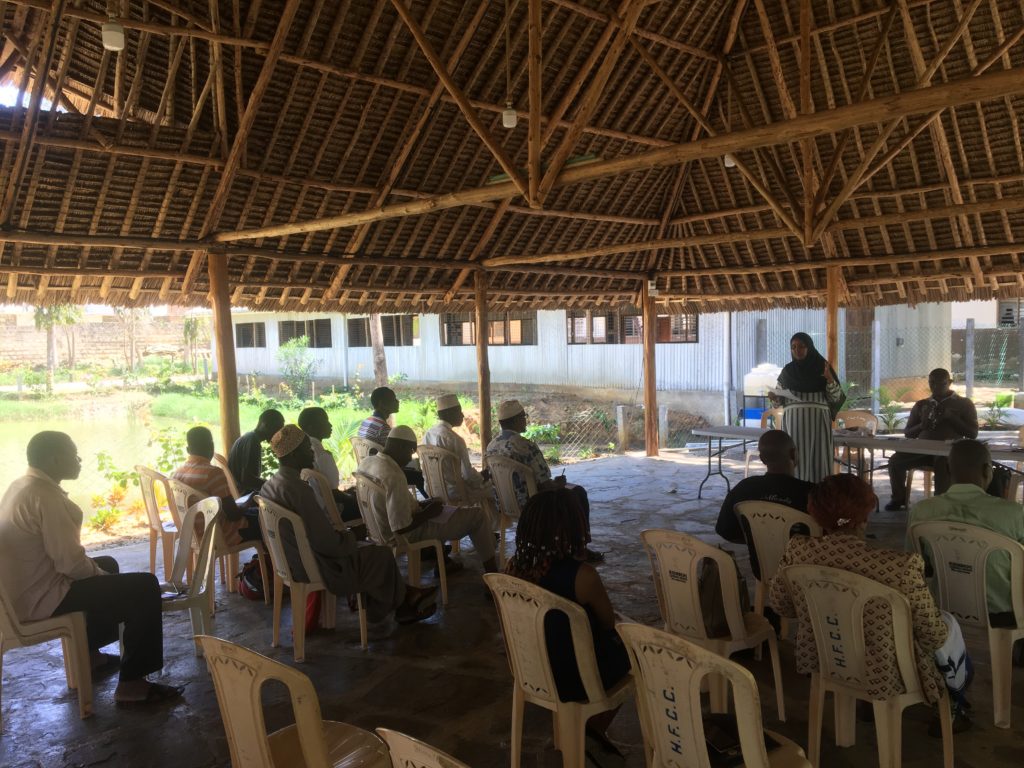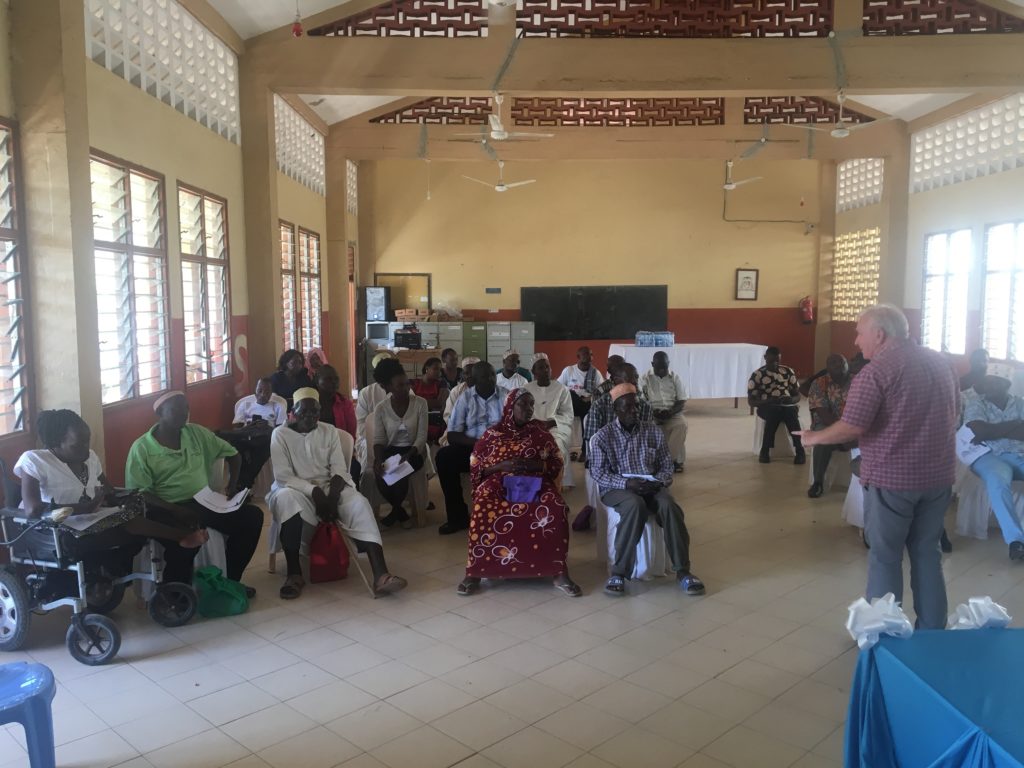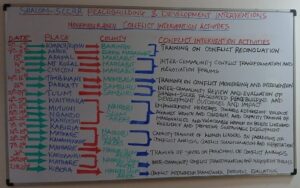By Godfrey Okoth MA.
Re-invigorating local institutional capacities towards community centered problem solving
The communities living along the East African Coast have lately suffered from reports of disappearances of young people who are claimed to have joined extremist groups. Moreover, intercommunal relationships have at times been characterized by tensions due to extreme and intolerant ideologies harbored by religious, political and ethnic factions as they struggle for dominance. In response to the invitation by religious and community leadership to support the course of curbing this worrying trend at the Kenyan Coast (https://shalomconflictcenter.org/shalom-sccrr-facilitates-amecea-forum-on-addressing-religious-ideological-extremism-in-eastern-africa/), Shalom-SCCRR has rolled out a program/module through which communities in Mombasa’s Likoni and Kisauni areas are being empowered to be active agents of change in their own society.

Our strategy for community insertion, getting to know all influential opinion shapers/actors from different community groups was first to engage on the issue of preventing election violence which often has religious dimensions. The sensitive and complex arena of radicalization and violent extremism requires the active involvement of community leaders and key influential opinion shapers with the central aim of investing in human interaction as a pivotal nonviolent strategy towards prevention of Violent Extremism among communities that face the risk of recruitment. The community; with characteristics unique to it provides a prolific ground upon which radicalization and violent extremism take deep root. Consequently, members of the same community are better placed to play the priority role in transforming the personal, relational, cultural and structural factors which, being enmeshed within their society remain critical enablers of radicalized behavior.

In the current year, Shalom-SCCRR has conducted 17 workshops in 5 project areas located in Nairobi and Mombasa informal settlements focusing on the management of manifest violence which often entail the dimension of ethnic, political and religious ideological extremism. The workshops have focused on developing the conflict analytical skills, peacebuilding techniques as well as mobilizing relationships and coordination arrangements among key influential opinion shapers and local duty bearers towards activating preventive measures and transformative processes. The opinion shapers are constantly guided to develop action plans aimed at cushioning at risk populations, transforming structural and cultural enablers of persistent violent extremism and taking appropriate actions towards mental health restoration of those who have suffered from stress, trauma and other post-traumatic stress disorders (PTSD), emanating from diverse dimensions of radicalization and violent extremist activities.

To the extent that we have engaged, Shalom-SCCRR’s approach is significantly ensuring that community opinion shapers are well aware of the existence, dangers and underlying causes of radicalization and religious ideological extremism while providing them with potential short and long term responses to the challenges of this social problem. The strategy is gradually enabling the transformation of individuals, communities and local duty bearers to a mindset of tolerance and inclusivity.
Shalom acknowledges the security risks and sensitivity that is associated with radicalization and violent extremism activities. Consequently, our team of professional project implementers employ great skill in appropriating non-violent strategies towards empowering antagonists (communities, recruiters and victims). Other than understanding the drivers and the dynamics of this vice, the communities are also enabled to utilize the understanding to develop mutual concern for the well-being of each other so as to collectively chart a common path towards their own interdependent peaceful coexistence and integrated development that is ever focused on reconciling differences.
By
Godfrey Okoth, MA
Project Officer, Mombasa Project
Relevant Links
- Radicalization and Extremism in Eastern Africa; Dynamics and Drivers’,http://mural.maynoothuniversity.ie/9086/7/PD-Radicalisation-2017.pdf
- Conflict transformation, Radicalization and Extremism in Eastern Africa’ https://shalomconflictcenter.org/conflict-transformation-radicalization-and-extremism-in-eastern-africa/
- Shalom-SCCRR deliberates on its interventions to counter and transform radicalization and extremism in eastern Africa. https://shalomconflictcenter.org/shalom-sccrr-deliberates-on-its-interventions-to-counter-and-transform-radicalisation-and-extremism-in-eastern-africa/
- 2009-2021 SHALOM-SCCRR RESULTS AND ACHIEVEMENTS https://shalomconflictcenter.org/2009-2021-shalom-sccrr-results-and-achievements/
- 2021 SHALOM -SCCRR RESULTS/ ACHIEVEMENTS https://shalomconflictcenter.org/2021-shalom-sccrr-results-achievements/
- Shalom-SCCRR Impacting On Education to Counter Underdevelopment and Violence in Garissa County. https://shalomconflictcenter.org/shalom-sccrr-impacting-on-education-to-counter-underdevelopment-and-violence-in-garissa-county/
- Human Rights are a Foundation of Shalom-SCCRR’s Conflict Resolution and Reconciliation Interventions https://shalomconflictcenter.org/human-rights-are-a-foundation-of-shalom-sccrrs-conflict-resolution-and-reconciliation-interventions
- Shalom-SCCRR’s Contribution to Women in Conflict Transformation and Peacebuilding. https://shalomconflictcenter.org/shalom-sccrrs-contribution-to-women-in-conflict-transformation-and-peacebuilding/

